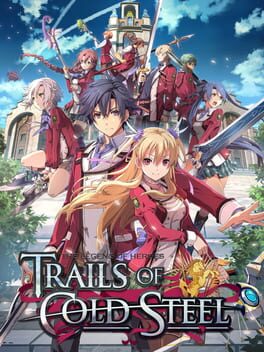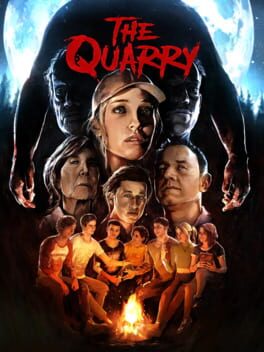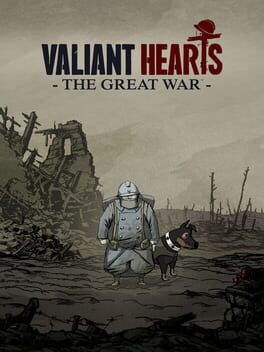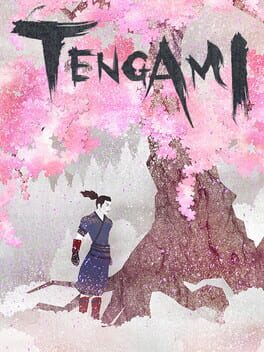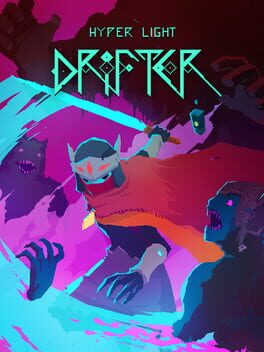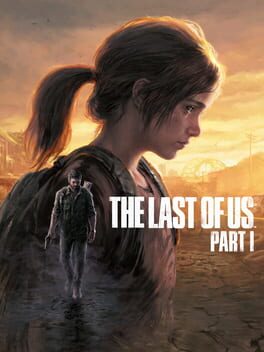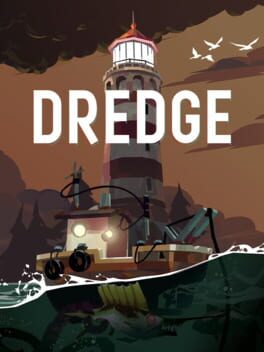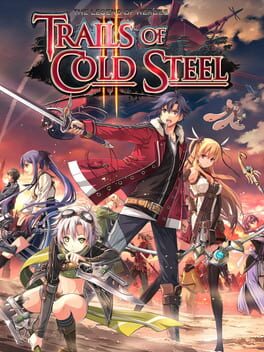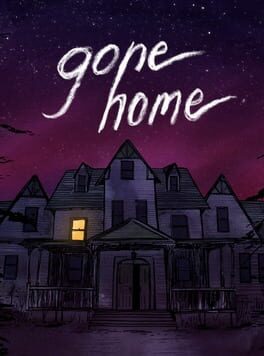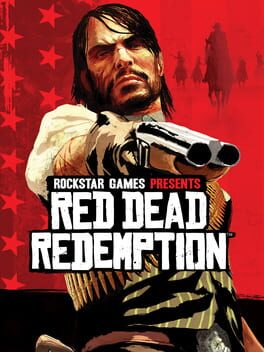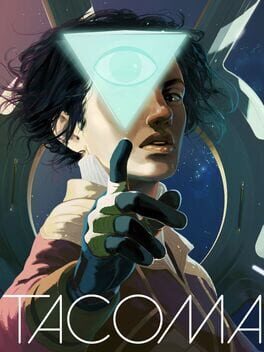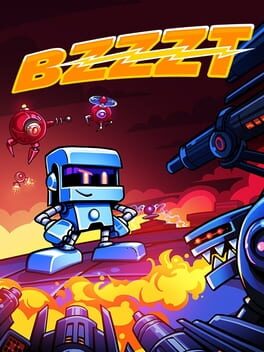Cuby
As someone who's a big fan of the previous Trails games, I had mixed feelings about this one after the credits rolled.
The biggest problem is definitely the overuse of modern anime tropes in the main story's writing. While previous titles had some tropes too, they were charming and fun at times. However, this game didn't find the right balance between goofy teenage humor and serious topics.
Another issue is the presentation, which can be clunky and awkward, ruining some moments that could have been impactful. This wasn't as apparent in previous titles due to their art style, but with the change to 3D modern anime graphics, it's more noticeable.
The game's saving grace is the references and nods to other Trails games, but these can only be fully appreciated if you've played all the previous games. I also enjoyed the tweaked combat system and some of the characters, such as Emma, Elliot, and Fie. Unfortunately, Rean, the main character, felt like a combination of every big main character from modern anime in the last decade. I hope he gets some more development and depth in the next titles.
The biggest problem is definitely the overuse of modern anime tropes in the main story's writing. While previous titles had some tropes too, they were charming and fun at times. However, this game didn't find the right balance between goofy teenage humor and serious topics.
Another issue is the presentation, which can be clunky and awkward, ruining some moments that could have been impactful. This wasn't as apparent in previous titles due to their art style, but with the change to 3D modern anime graphics, it's more noticeable.
The game's saving grace is the references and nods to other Trails games, but these can only be fully appreciated if you've played all the previous games. I also enjoyed the tweaked combat system and some of the characters, such as Emma, Elliot, and Fie. Unfortunately, Rean, the main character, felt like a combination of every big main character from modern anime in the last decade. I hope he gets some more development and depth in the next titles.
2022
The subpar writing and abundance of inconsistencies in the plot were the only aspects that scared me.
Despite having the budget to hire talented actors and incorporate impressive facial animations, the creators neglected to craft a storyline that would even qualify as passable for a B-grade horror movie.
Despite having the budget to hire talented actors and incorporate impressive facial animations, the creators neglected to craft a storyline that would even qualify as passable for a B-grade horror movie.
Valiant Hearts is an puzzle-adventure game that delves into the atrocities of WW1. It effectively portrays the senselessness of war without resorting to excessive graphic content, making it an excellent choice for educational purposes.
While the game's puzzle design is ok, there are some parts in the last chapter that require a bit too much trial and error, which can detract from the overall narrative. However, the game offers a surprising variety of puzzles that prevent the gameplay from becoming monotonous. The collectibles in the game are actually useful for an ubisoft game, providing players with various objects, letters, and background information.
The narrative and characters are a mixed bag. At times, the game succeeds in creating emotional connections with the characters especially at the end, while at other times, they feel somewhat generic and lack depth.if the developers had invested more effort in character development, it could have further elevated the emotional impact of the game.
While the game's puzzle design is ok, there are some parts in the last chapter that require a bit too much trial and error, which can detract from the overall narrative. However, the game offers a surprising variety of puzzles that prevent the gameplay from becoming monotonous. The collectibles in the game are actually useful for an ubisoft game, providing players with various objects, letters, and background information.
The narrative and characters are a mixed bag. At times, the game succeeds in creating emotional connections with the characters especially at the end, while at other times, they feel somewhat generic and lack depth.if the developers had invested more effort in character development, it could have further elevated the emotional impact of the game.
2023
"Where is everyone going, bingo?"
After hearing this one-liner, the game had me hooked. I absolutely love the witty one-liners and situational jokes from Leon. The game doesn't take itself too seriously when it comes to story and writing, and that's a nice contrast to the games I usually enjoy.
If you're familiar with the previous remakes, the game plays like a well-oiled machine. It builds on them and adds nice new features like the knife parry, some new weapons, and melee takedowns. It's such a great feeling when you suplex a crazy scythe monk from behind.
To my surprise, I didn't mind the hordes of enemies at all. The game gives you so much choice on how to handle them, and it never felt like a modern CoD-like shooter. It stays true to its survival horror roots. Instead of constant fear, you feel rather panicky and have the constant urge to run away and find a good spot where you can handle the several Plaga infested Enemies.
The game only has some small issues. They removed the clothing debris, and Leon now looks like he has just taken a shower despite fighting for his dear life even in the later Chapters. I liked that aspect more in the previous remakes where you could see your progress by how Leon, Claire, and Jill looked. Also, some parts in the castle could have been cropped to half, especially the insect section. The boss fights against Saddler and Ramon were also kind of underwhelming and didn't feel great and rewarding.
I can't wait to try the several challenge runs the game still has to offer, and I would like to see an Ada DLC as future content.
After hearing this one-liner, the game had me hooked. I absolutely love the witty one-liners and situational jokes from Leon. The game doesn't take itself too seriously when it comes to story and writing, and that's a nice contrast to the games I usually enjoy.
If you're familiar with the previous remakes, the game plays like a well-oiled machine. It builds on them and adds nice new features like the knife parry, some new weapons, and melee takedowns. It's such a great feeling when you suplex a crazy scythe monk from behind.
To my surprise, I didn't mind the hordes of enemies at all. The game gives you so much choice on how to handle them, and it never felt like a modern CoD-like shooter. It stays true to its survival horror roots. Instead of constant fear, you feel rather panicky and have the constant urge to run away and find a good spot where you can handle the several Plaga infested Enemies.
The game only has some small issues. They removed the clothing debris, and Leon now looks like he has just taken a shower despite fighting for his dear life even in the later Chapters. I liked that aspect more in the previous remakes where you could see your progress by how Leon, Claire, and Jill looked. Also, some parts in the castle could have been cropped to half, especially the insect section. The boss fights against Saddler and Ramon were also kind of underwhelming and didn't feel great and rewarding.
I can't wait to try the several challenge runs the game still has to offer, and I would like to see an Ada DLC as future content.
2014
I'm relieved that this game doesn't last longer than an hour, otherwise I would have likely fallen asleep halfway through. While it may be suitable for individuals who struggle with insomnia, there isn't much else to it beyond tedious trial-and-error puzzles and a main character who moves at a painfully slow pace.
2016
I must express my absolute adoration for the soundtrack of the game. The electrifying tunes captured me from the first minute and never let go. It reminded me a lot of the music from Boards of Canada, which is one of my favorite bands. Moreover, this kind of music suits the setting of HLD perfectly: a cyberistic, post-apocalyptic world where beauty still exists amidst death and decay.
In terms of gameplay, it flows smoothly, and the fights have a good variety to them. You have many weapons at your disposal, and it feels great to mix things up with slow and heavy attacks, dashes, and gunshots. However, the balancing feels a bit off, as I felt too powerful after some upgrades, particularly in some of the boss fights. I think the developers could have increased the damage of some bosses to make them more challenging, which apperently is a thing in NG+.
HLD also has a fantastic feature where you can chain up dashes by pressing the button at the exact same millisecond. At first, I thought it was impossible to do it more than three times, but with some practice, I mastered it. It's such a rewarding feeling to almost fly through the beautiful world in hyper speed.
While I don't have particularly strong feelings about the pixel aesthetic, it's pleasant to look at and fits the setting. However, I wonder how it would look with the same art style as Hollow Knight.
The story of HLD is cryptic and only shown, not told. I enjoyed it, as NPCs tell their stories through pictures in their heads, and players can fill in the gaps with their imagination.
In terms of gameplay, it flows smoothly, and the fights have a good variety to them. You have many weapons at your disposal, and it feels great to mix things up with slow and heavy attacks, dashes, and gunshots. However, the balancing feels a bit off, as I felt too powerful after some upgrades, particularly in some of the boss fights. I think the developers could have increased the damage of some bosses to make them more challenging, which apperently is a thing in NG+.
HLD also has a fantastic feature where you can chain up dashes by pressing the button at the exact same millisecond. At first, I thought it was impossible to do it more than three times, but with some practice, I mastered it. It's such a rewarding feeling to almost fly through the beautiful world in hyper speed.
While I don't have particularly strong feelings about the pixel aesthetic, it's pleasant to look at and fits the setting. However, I wonder how it would look with the same art style as Hollow Knight.
The story of HLD is cryptic and only shown, not told. I enjoyed it, as NPCs tell their stories through pictures in their heads, and players can fill in the gaps with their imagination.
TLOU is the prime example of a triple-A game done right. It follows a clear artistic vision without taking too many compromises. Its biggest strength is clearly the storytelling and character design. It's seldom that I've been so emotionally invested during a game. Ellie and Joel feel so human and alive. The way they talk and act makes you almost forget that you're playing a video game. The power of attraction that these two exert is almost more scary than the many forms of the infected Cordyceps victims.
The writing comes without big pathos or a moral pointing finger, and with many subtle gestures. You always ask yourself, "What would I do in this situation?" and you constantly reflect on the state of decay and brutalization the world is in. Only a few games can make me do that.
The aesthetic of the post-apocalyptic USA is beautifully portrayed, from the towering skyscrapers to the abandoned suburbs and overgrown highways. The game's immersive environment engages all of your senses, which adds to the gripping and sometimes very dark atmosphere.
Only small issues hold me back from giving this 5 stars. Mostly, it's the time skips that occur throughout the playthrough. I would have loved to see more smaller interactions between Joel and Ellie, which often form a relationship more than some big key happenings. Maybe some bonfire dialogues here and there. Also, the gameplay can get repetitive for some, I guess, if you're not a fan of the genre, since mostly you do the same thing just in different surroundings.
All in all, TLOU tells a very moving story about humanity that will trigger all your empathy sensors and will probably stay with you way after the credits roll.
The writing comes without big pathos or a moral pointing finger, and with many subtle gestures. You always ask yourself, "What would I do in this situation?" and you constantly reflect on the state of decay and brutalization the world is in. Only a few games can make me do that.
The aesthetic of the post-apocalyptic USA is beautifully portrayed, from the towering skyscrapers to the abandoned suburbs and overgrown highways. The game's immersive environment engages all of your senses, which adds to the gripping and sometimes very dark atmosphere.
Only small issues hold me back from giving this 5 stars. Mostly, it's the time skips that occur throughout the playthrough. I would have loved to see more smaller interactions between Joel and Ellie, which often form a relationship more than some big key happenings. Maybe some bonfire dialogues here and there. Also, the gameplay can get repetitive for some, I guess, if you're not a fan of the genre, since mostly you do the same thing just in different surroundings.
All in all, TLOU tells a very moving story about humanity that will trigger all your empathy sensors and will probably stay with you way after the credits roll.
2023
The game's sound design is truly remarkable and stands out among the best I've ever heard. It's been quite some time since my ears had the pleasure of experiencing such a high level of audio quality. Every sound, from the creaking of a fishing rod being cast to the click of a lightbulb switch and the gentle morning breeze, is incredibly crisp. This attention to detail greatly contributes to the creation of a specific atmosphere making you really feel like that saddened fisherman caught in a tale of loss and regret.
This game may mark the final downfall of the series for me. After playing CS 1, I was already hesitant to dive into CS 2, but my love for the series compelled me to proceed. Unfortunately, almost every positive aspect from the previous two arcs is noticeably absent.
The soundtrack lacks creativity and becomes monotonous. Many tracks feel hollow and devoid of emotion, making them inferior even to the weakest songs in Zero and Azure.
The main character lacks any personality or charm; he is a predictable replica of every generic modern shonen anime character. What's worse is that almost every character praises him as if he were the second coming of Jesus. He regurgitates the same lines in every bonding scene, constantly preaching about overcoming problems through intense training. There might be two or three characters who at least match the quality of the previous games, which is truly disappointing for a character-driven JRPG. The most obnoxious example of this is Millium, who is not only the worst but also the most irritating character I've ever encountered in any video game. Every scene involving her becomes unbearable. At least Falcom is self consciousness about this by introducing Jusis as someone who gives her some sort of contra.
The writing is juvenile and filled with anime clichés. Despite a supposed major civil war taking place, there is never a sense of real threat or danger. Casualties are nonexistent, making it the most pacifistic war in any fictional medium. Even the villains are no longer true antagonists; they merely serve as a backdrop for the main cast to reflect on their mundane personal problems.
The Crossbell saga thrived on its setting and soundtrack, while the Sky saga excelled in characters and writing. Unfortunately, Cold Steel has none of these strengths. It is an entirely empty shell of a game. I am genuinely disappointed that my journey through the Legend of Heroes series will likely end with this installment. I have cherished memories of the previous games, but perhaps I have outgrown them, and it's time to move on.
The soundtrack lacks creativity and becomes monotonous. Many tracks feel hollow and devoid of emotion, making them inferior even to the weakest songs in Zero and Azure.
The main character lacks any personality or charm; he is a predictable replica of every generic modern shonen anime character. What's worse is that almost every character praises him as if he were the second coming of Jesus. He regurgitates the same lines in every bonding scene, constantly preaching about overcoming problems through intense training. There might be two or three characters who at least match the quality of the previous games, which is truly disappointing for a character-driven JRPG. The most obnoxious example of this is Millium, who is not only the worst but also the most irritating character I've ever encountered in any video game. Every scene involving her becomes unbearable. At least Falcom is self consciousness about this by introducing Jusis as someone who gives her some sort of contra.
The writing is juvenile and filled with anime clichés. Despite a supposed major civil war taking place, there is never a sense of real threat or danger. Casualties are nonexistent, making it the most pacifistic war in any fictional medium. Even the villains are no longer true antagonists; they merely serve as a backdrop for the main cast to reflect on their mundane personal problems.
The Crossbell saga thrived on its setting and soundtrack, while the Sky saga excelled in characters and writing. Unfortunately, Cold Steel has none of these strengths. It is an entirely empty shell of a game. I am genuinely disappointed that my journey through the Legend of Heroes series will likely end with this installment. I have cherished memories of the previous games, but perhaps I have outgrown them, and it's time to move on.
2013
Gone Home deeply resonated with me, much like only a handful of games I've encountered in the past. It bears striking resemblances to my initial playthrough of Edith Finch, to the point where I wouldn't be surprised if the developers of Edith Finch were avid fans of Gone Home.
Right from the start, I was hooked by its eerie and detailed sound design. you can hear faint whispers and cracking of old wooden floors, all while a thunderstorm raged outside. This created the perfect atmosphere for uncovering the bittersweet stories of the family members in an old house all by yourself. In particular Sam's story was relatable and beautifully conveyed through fragments of notes and diary entries that were voiced in the background.
As someone who longs to have experienced the '90s as a teenager, it was an absolute delight to discover all the pop culture references throughout the game. And as a fan of noise rock, I couldn't contain my excitement when I came across mentions of Guided by Voices on a magazine cover or a concert poster featuring Sonic Youth. The cherry on top was the emo song playing during the credits, which definitely brought a tear to my eye.
i feel like this game was made for a really specific audience and i'm probably one of them.
Right from the start, I was hooked by its eerie and detailed sound design. you can hear faint whispers and cracking of old wooden floors, all while a thunderstorm raged outside. This created the perfect atmosphere for uncovering the bittersweet stories of the family members in an old house all by yourself. In particular Sam's story was relatable and beautifully conveyed through fragments of notes and diary entries that were voiced in the background.
As someone who longs to have experienced the '90s as a teenager, it was an absolute delight to discover all the pop culture references throughout the game. And as a fan of noise rock, I couldn't contain my excitement when I came across mentions of Guided by Voices on a magazine cover or a concert poster featuring Sonic Youth. The cherry on top was the emo song playing during the credits, which definitely brought a tear to my eye.
i feel like this game was made for a really specific audience and i'm probably one of them.
2000
As a child, I played numerous Final Fantasy games, but for various reasons, I never managed to complete any of them. Now that I have finished quite a few JRPGs, I believe it's finally time to delve into the series. After conducting some research, I chose FF IX as my starting point.
To my astonishment, the game hasn't shown its age in terms of gameplay. It actually felt quite refreshing to me since it was my first experience with the ATB mechanic. Furthermore, the presentation is truly impressive, surpassing many modern games in terms of art design and overall production.
Undoubtedly, the main cast, especially the adorable and clumsy little black mage, Vivi, steals the show. His journey to find meaning in his existence is beautifully written, and every scene involving him is a delight. The game effectively conveys emotions through gestures and text walls instead of relying on a full localization, which helped me further sympathize with the characters as I imagined their voices in my head. Another favorite of mine was Quina, who serves as comic relief with a simple yet effective purpose of devouring delicious food.
The main plot of the game delivers a impactful message, and it is filled with numerous grand and intriguing moments. I never experienced boredom; instead, I was constantly eager for the next development. the main topic was certainly the circle of life and death and how humanity deals with mortality, it comes with quite a bit pathos and at times it's quite melodramatic but i mean that's what u paid for when u play a JRPG so i didn't mind it that much.
I completed most of the side quests, which mainly consisted of straightforward fetch quests. However, they were cleverly integrated into the main story, and I genuinely enjoyed them. Discovering secrets throughout the game was also immensely satisfying
I also found great enjoyment in playing the card game Tetra Master. I have always appreciated when mini-games have some connection to the overall game, and the fact that I could collect cards by defeating beasts and then obtain their corresponding monster cards was quite cool. However, I must admit that after around 100 games or so, the experience became somewhat repetitive due to the RNG factor.
One of the aspects I eagerly anticipated was the soundtrack, and I must admit I was somewhat disappointed. Many tracks were too monotonous and forcefully took the spotlight, particularly the typical organ tracks that I have grown tired of. It felt like only the epic tracks that accompanied intense moments truly resonated with me. I hope this aspect differs in other Final Fantasy games. upon re listening to the soundtrack on tape i actually enjoyed it a lot more, maybe it was the lack of high soundquality in my verison of the game or the fact that it just works better without the game.
To my astonishment, the game hasn't shown its age in terms of gameplay. It actually felt quite refreshing to me since it was my first experience with the ATB mechanic. Furthermore, the presentation is truly impressive, surpassing many modern games in terms of art design and overall production.
Undoubtedly, the main cast, especially the adorable and clumsy little black mage, Vivi, steals the show. His journey to find meaning in his existence is beautifully written, and every scene involving him is a delight. The game effectively conveys emotions through gestures and text walls instead of relying on a full localization, which helped me further sympathize with the characters as I imagined their voices in my head. Another favorite of mine was Quina, who serves as comic relief with a simple yet effective purpose of devouring delicious food.
The main plot of the game delivers a impactful message, and it is filled with numerous grand and intriguing moments. I never experienced boredom; instead, I was constantly eager for the next development. the main topic was certainly the circle of life and death and how humanity deals with mortality, it comes with quite a bit pathos and at times it's quite melodramatic but i mean that's what u paid for when u play a JRPG so i didn't mind it that much.
I completed most of the side quests, which mainly consisted of straightforward fetch quests. However, they were cleverly integrated into the main story, and I genuinely enjoyed them. Discovering secrets throughout the game was also immensely satisfying
I also found great enjoyment in playing the card game Tetra Master. I have always appreciated when mini-games have some connection to the overall game, and the fact that I could collect cards by defeating beasts and then obtain their corresponding monster cards was quite cool. However, I must admit that after around 100 games or so, the experience became somewhat repetitive due to the RNG factor.
One of the aspects I eagerly anticipated was the soundtrack, and I must admit I was somewhat disappointed. Many tracks were too monotonous and forcefully took the spotlight, particularly the typical organ tracks that I have grown tired of. It felt like only the epic tracks that accompanied intense moments truly resonated with me. I hope this aspect differs in other Final Fantasy games. upon re listening to the soundtrack on tape i actually enjoyed it a lot more, maybe it was the lack of high soundquality in my verison of the game or the fact that it just works better without the game.
2010
I'm likely among the fortunate few who have experienced the second Red Dead game prior to the first one. This undoubtedly aided in intensifying the emotional impact during pivotal moments within the story. The entire atmosphere is instantly established as we embark on a train journey towards the final bastion of the wild west. During this ride, an elderly noblewoman comments on how Native Americans should ostensibly be happier due to the civilizing influence of white men. Liberty emerges as a central theme yet again, exploring its potential to corrupt and dismantle individuals.
this time we venture into Mexico, reliving the turmoil of the civil war. Rockstar portrays this historical conflict with unflinching cruelty, while simultaneously depicting the struggles of the local populace. Of course, there's a fair share of exaggeration and dark humor. Throughout John's odyssey, a recurring question lingers: will he find fulfillment upon reaching his ultimate goal, or will he suffer the emotional demise that has befallen many men attempting a path of redemption?
The writers provide a satisfying conclusion to the overarching saga of the Dutch van der Linde gang. This finale struck me with an emotional impact akin to the force of a double-barreled shotgun. The occasionally lifeless open-world design and occasionally clunky gameplay become inconsequential when you approach the game's conclusion, underscoring the remarkable quality of the writing.
this time we venture into Mexico, reliving the turmoil of the civil war. Rockstar portrays this historical conflict with unflinching cruelty, while simultaneously depicting the struggles of the local populace. Of course, there's a fair share of exaggeration and dark humor. Throughout John's odyssey, a recurring question lingers: will he find fulfillment upon reaching his ultimate goal, or will he suffer the emotional demise that has befallen many men attempting a path of redemption?
The writers provide a satisfying conclusion to the overarching saga of the Dutch van der Linde gang. This finale struck me with an emotional impact akin to the force of a double-barreled shotgun. The occasionally lifeless open-world design and occasionally clunky gameplay become inconsequential when you approach the game's conclusion, underscoring the remarkable quality of the writing.
In a recent tweet, an indie game developer referred to Baldur's Gate 3 as a gaming anomaly. While I absolutely adore BG3, especially for the fact that it brought the rather niche genre of CRPGs to a broader audience, the true anomaly in the world of video games is Red Dead Redemption 2 for me.
What truly set this game apart from others, is the remarkable level of attention to detail evident in every facet of its design. Every individual you encounter follows their own daily routine, from constructing houses to initiating a bar brawl on their own, or simply basking in the sun after a hunting expedition - and this is just the tip of the iceberg. Throughout my numerous playthroughs, there were countless moments where I found myself engrossed in my surroundings, and at times, the game even rewarded my careful observation with small stories. For instance, while I was on my way to procure some food for our camp, I spotted a distant plume of smoke on the horizon. I cautiously rode towards it, took cover behind a tree, and watched to discern the situation. There, I found several veterans of the Civil War who had been defeated by the Northern states and were now engaged in some form of guerrilla warfare against their "oppressors." From my concealed vantage point, I overheard them discussing fallen comrades and lamenting the sorry state of the world after the war. In another example I found myself fishing by a picturesque pond in a valley encircled by mountains, where I could keenly observe the wildlife going about their activities. The sight of a bald eagle snatching a fish from the water right in front of me was incredibly captivating to witness. These are merely a few minor examples within a world teeming with intricacies for players to explore, many of which may go unnoticed by the majority of players.
Another significant aspect that I genuinely appreciate is the deliberate slow pacing. Everything you undertake carries weight and feels quite realistic. Whether it's working in the camp, chopping wood, cooking meat, or crafting arrows, it all takes its time. I can't commend Rockstar enough for adopting this approach because it tremendously enhances your immersion in this world and your role as Arthur. You can truly role-play as Arthur, even though he's a well-defined character with his own mind and thoughts. He even maintains his own journal where you can delve into his innermost desires and anxieties. With each experience you share with him, you develop a deeper sense of empathy, especially in the last two chapters.
It's not only the main protagonist who is exceptionally well-written, all the side characters, especially your gang members, possess unique and non-cliché personalities. The gang's leader, Dutch van der Linde, is particularly intriguing because his true identity and intentions aren't immediately apparent. As you get to know him better, you can perceive the complexities behind the facade of a charismatic leader figure who grapples with profound self-doubt and regrets. To be honest, if I were in Arthur's situation, living in that era and with his history, I'd likely follow this man to the ends of the earth as well.
From a technical perspective, the game looks incredibly impressive. Each frame could be a painting crafted by a 19th-century landscape artist. The atmospheric lighting, particularly in Saint Denis at night, is awe-inspiring. One time, I ventured to the highest mountain and observed a complete day and night cycle, and it looked remarkably realistic and sharp. When you simply explore the open world, nearly all your senses are engaged, from the chirping of birds to the sound of horses' hooves or the howling of a pack of wolves.
The soundtrack consistently strikes the perfect notes for every situation. Some key story moments excel primarily because the right song accompanies them. There were numerous instances where I experienced goosebumps solely from the soundtrack. Certain tracks also feature a significant instrumental post-rock influence, which happens to be one of my favorite genres, and I truly appreciate that. For instance, the moment when you return from Guarma and ride back to camp ranks among my favorite moments in video game history because it masterfully conveys Arthur's current state without relying on words – it's a prime example of "show don't tell."
Now, concerning the main plot, I believe the developers were avid enthusiasts of anti-Western literature, such as "Butcher's Crossing," or films like "There Will Be Blood." They skillfully toy with the romantic clichés of the American West and turn them on their heads. The central theme of a world you're familiar with gradually descending into chaos is depicted with great attention to subtle details and expertly crafted, realistic dialogue. Rockstar has so much to tell, and you can't help but become fully engaged, even in smaller side narratives. For instance, there's the story of a circus troupe that lost its main attraction, a large tiger that escaped and is now causing turmoil on a small farm, or the tale of a despondent gunslinger who can't find solace after the "heroic" deeds he performed in the past.
If I were to be critical and nitpick certain aspects I didn't like, it would be that Rockstar could have pushed the boundaries of realism further in game design. For instance, they could have implemented a more extended day and night cycle or a heightened level of realism in a survival mode where you'd need to eat and sleep daily. Additionally, there are moments when the wildlife doesn't behave naturally. For example, it's hard to imagine that a healthy, well-fed pack of wolves would casually attack a human on horseback just passing through their territory. There are also instances where deer seemingly appear out of nowhere, making it feel like they are conveniently placed for the player to hunt on their way to the next objective. Also Arthur can take way too much bullets before he dies, especially with a full health core, again i would've liked a more realistic approach, but taken that rockstar has it's roots in more arcady game series like GTA i can understand this aspect to not fully loose a majority of their playerbase.
Red Dead Redemption 2 is possibly the greatest game ever, a contemporary masterpiece of art that may well remain relevant even a decade or two from now.
What truly set this game apart from others, is the remarkable level of attention to detail evident in every facet of its design. Every individual you encounter follows their own daily routine, from constructing houses to initiating a bar brawl on their own, or simply basking in the sun after a hunting expedition - and this is just the tip of the iceberg. Throughout my numerous playthroughs, there were countless moments where I found myself engrossed in my surroundings, and at times, the game even rewarded my careful observation with small stories. For instance, while I was on my way to procure some food for our camp, I spotted a distant plume of smoke on the horizon. I cautiously rode towards it, took cover behind a tree, and watched to discern the situation. There, I found several veterans of the Civil War who had been defeated by the Northern states and were now engaged in some form of guerrilla warfare against their "oppressors." From my concealed vantage point, I overheard them discussing fallen comrades and lamenting the sorry state of the world after the war. In another example I found myself fishing by a picturesque pond in a valley encircled by mountains, where I could keenly observe the wildlife going about their activities. The sight of a bald eagle snatching a fish from the water right in front of me was incredibly captivating to witness. These are merely a few minor examples within a world teeming with intricacies for players to explore, many of which may go unnoticed by the majority of players.
Another significant aspect that I genuinely appreciate is the deliberate slow pacing. Everything you undertake carries weight and feels quite realistic. Whether it's working in the camp, chopping wood, cooking meat, or crafting arrows, it all takes its time. I can't commend Rockstar enough for adopting this approach because it tremendously enhances your immersion in this world and your role as Arthur. You can truly role-play as Arthur, even though he's a well-defined character with his own mind and thoughts. He even maintains his own journal where you can delve into his innermost desires and anxieties. With each experience you share with him, you develop a deeper sense of empathy, especially in the last two chapters.
It's not only the main protagonist who is exceptionally well-written, all the side characters, especially your gang members, possess unique and non-cliché personalities. The gang's leader, Dutch van der Linde, is particularly intriguing because his true identity and intentions aren't immediately apparent. As you get to know him better, you can perceive the complexities behind the facade of a charismatic leader figure who grapples with profound self-doubt and regrets. To be honest, if I were in Arthur's situation, living in that era and with his history, I'd likely follow this man to the ends of the earth as well.
From a technical perspective, the game looks incredibly impressive. Each frame could be a painting crafted by a 19th-century landscape artist. The atmospheric lighting, particularly in Saint Denis at night, is awe-inspiring. One time, I ventured to the highest mountain and observed a complete day and night cycle, and it looked remarkably realistic and sharp. When you simply explore the open world, nearly all your senses are engaged, from the chirping of birds to the sound of horses' hooves or the howling of a pack of wolves.
The soundtrack consistently strikes the perfect notes for every situation. Some key story moments excel primarily because the right song accompanies them. There were numerous instances where I experienced goosebumps solely from the soundtrack. Certain tracks also feature a significant instrumental post-rock influence, which happens to be one of my favorite genres, and I truly appreciate that. For instance, the moment when you return from Guarma and ride back to camp ranks among my favorite moments in video game history because it masterfully conveys Arthur's current state without relying on words – it's a prime example of "show don't tell."
Now, concerning the main plot, I believe the developers were avid enthusiasts of anti-Western literature, such as "Butcher's Crossing," or films like "There Will Be Blood." They skillfully toy with the romantic clichés of the American West and turn them on their heads. The central theme of a world you're familiar with gradually descending into chaos is depicted with great attention to subtle details and expertly crafted, realistic dialogue. Rockstar has so much to tell, and you can't help but become fully engaged, even in smaller side narratives. For instance, there's the story of a circus troupe that lost its main attraction, a large tiger that escaped and is now causing turmoil on a small farm, or the tale of a despondent gunslinger who can't find solace after the "heroic" deeds he performed in the past.
If I were to be critical and nitpick certain aspects I didn't like, it would be that Rockstar could have pushed the boundaries of realism further in game design. For instance, they could have implemented a more extended day and night cycle or a heightened level of realism in a survival mode where you'd need to eat and sleep daily. Additionally, there are moments when the wildlife doesn't behave naturally. For example, it's hard to imagine that a healthy, well-fed pack of wolves would casually attack a human on horseback just passing through their territory. There are also instances where deer seemingly appear out of nowhere, making it feel like they are conveniently placed for the player to hunt on their way to the next objective. Also Arthur can take way too much bullets before he dies, especially with a full health core, again i would've liked a more realistic approach, but taken that rockstar has it's roots in more arcady game series like GTA i can understand this aspect to not fully loose a majority of their playerbase.
Red Dead Redemption 2 is possibly the greatest game ever, a contemporary masterpiece of art that may well remain relevant even a decade or two from now.
2017
Although Tacoma does not have quite the emotional impact of Gone Home, it tells a compelling story about corporate greed in a rather realistic space setting in the year 2088. I love how the developers tell their story mostly through environmental clues, and sometimes it just takes one hidden letter or a well-placed object to evoke emotions and if u take ur time getting to know the characters and their small little stories u can't help but feel empathetic for everyone of them. Again, I like the song choices that make certain moments much more memorable. I can't wait to dive deeper into the tracks, just like I did with Gone Home, where I discovered bands such as Le Tigre and Bikini Kill. I'm quite eager to see what they have in store with their next game called Open Roads.
2023
Bzzzt instantly beams you back to the 80s platformers with its colorful futuristic art design and the chiptune-like soundtrack. The controls are very precise, and while it's not as merciless as other games of the genre, it can still be quite challenging traversing through the 52 levels on the hunt for golden screws and a better time. If you're a fan of the genre, it's a must-buy. Also, if you have problems with timing in platformer games, Bzzzt has a very accessible easy mode without compromising the core gameplay.
I would say it's definitely on par with modern games of the genre, like Celeste gameplay-wise. It's a bit of a bummer for me personally that you can summarize the whole plot in one sentence, since I quite enjoyed it in Celeste, but that might be a plus for you if you just want to experience a short little platformer.
I would say it's definitely on par with modern games of the genre, like Celeste gameplay-wise. It's a bit of a bummer for me personally that you can summarize the whole plot in one sentence, since I quite enjoyed it in Celeste, but that might be a plus for you if you just want to experience a short little platformer.
